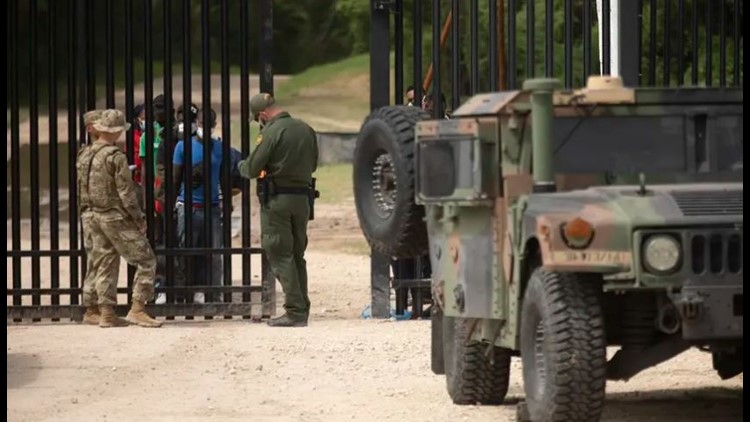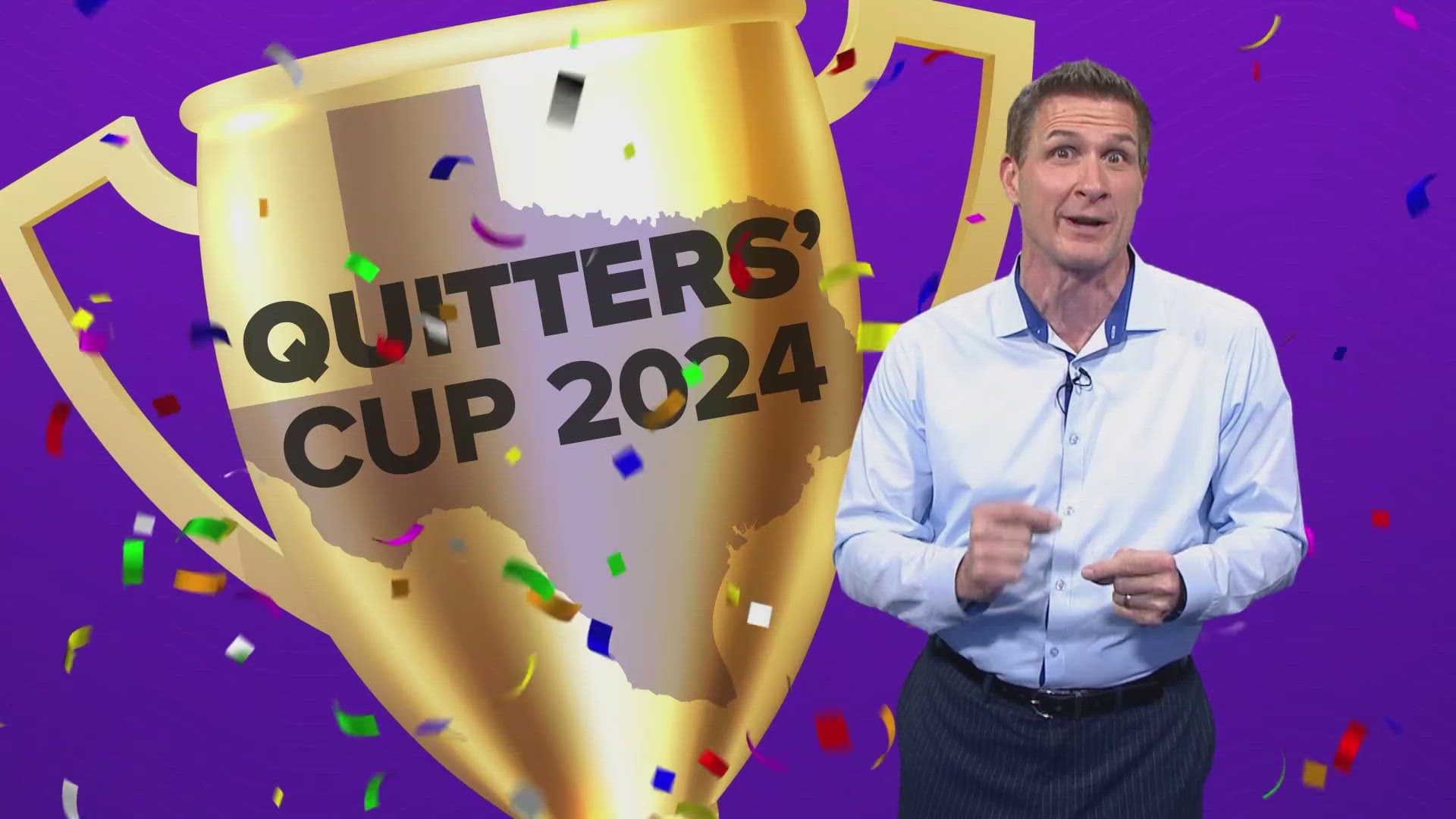DALLAS — On Friday night, the two candidates for Texas governor will square off in the Rio Grande Valley for what may be their only debate before the November election.
An issue that is likely to get a lot of attention when they face off is border security and immigration. Gov. Greg Abbott has made that the centerpiece of his run for re-election and has been using the power of his office and the purse of Texas to advance a surge of state resources for a border crackdown.
It is, of course, a federal responsibility to enforce the borders of the United States, so Texas is limited in what it can do.
But 18 months ago, Abbott ordered thousands of Department of Public Safety state troopers and Texas National Guard members to also secure the border, and push up against the bounds of state authority, a move that has drawn the attention of the U.S. Department of Justice.
Texas governor spending big on controversial border program
To date, the governor says he has gotten $4 billion in state funding for his border program.
How much is that, relatively speaking? Well, when Texans buy gasoline (and it is not uncommon for Texans to buy more of it than any other state in the country), they pay a gas tax of 20 cents per gallon.
The total fuel taxes the state collected in the past year added up to just under $4 billion ($3,783,904,000), so that gives you an idea.
After so much money has been dedicated to the border effort, there’s disagreement over whether all those Texas tax dollars have been well spent.
County judge: Abbott's expenditures on border ineffective, would be better spent elsewhere
That debate is also happening in Hidalgo County, which is the site for Friday’s gubernatorial debate between Abbott and Democratic challenger Beto O’Rourke.
Hidalgo County Judge Richard Cortez, a Democrat, thinks the operation to arrest migrants near the border and into the interior of Texas will do nothing to stem the wave of illegal entries.
“I can tell you when he did this, I spoke to somebody in his office and said listen I don’t know what the answer is but let’s see what the probability is — if these people are coming all the way from Central America, coming through all this pain, all these jungles, all this effort and they finally get to the river and they’re going to cross over here and then the governor feels that putting them in an air conditioned jail and feeding them for six months and keeping them comfortable is going to keep them from coming… okay,” he chuckled.
Judge Cortez was one of several county leaders along the Texas border with Mexico who opted out of Operation Lone Star. He says the state’s enforcement program can’t truly be effective because it doesn’t fix fundamental problems with the immigration system.
But he says a chunk of the money being spent for the governor’s enforcement program could go a long way toward fixing some other problems in his community.
"I have 40% of my people here in poverty, so I would rather spend that money educating them and building human capital…so my taxpayer line can grow faster than my welfare line. I respect the governor for the decisions he makes because I hope he makes them for the reasons that he believes to be right," Cortez said.
"But conversely, I hope that he respects my decision to not agree with him. We don’t need somebody to define the problem, we need somebody to define the solution. And what we have had is people continuously defining the problem, but no solutions. I haven’t heard a solution from either side," he added.
Republican Party official in border county says state border surge needed even if it produces 'an ounce of helping'
Across town, Hidalgo County Republican Party Secretary Hilda Garza DeShazo says she goes way back with Judge Cortez and says she flatly disagrees with his position on this issue, because of the number of undocumented people coming into Texas from Mexico.
“We need to be careful where we are taking from, but I think if the money is there, and it can be used – then do it. My house is six miles from the border, and I believe that something has to be done. Operation Lone Star – if it has an ounce of helping with this situation – I agree with it," Cortez said.
DeShazo sees the border initiative as a necessary investment that picks up where the federal response drops off, “I think it will start to help. I think it’ll call attention to the problem…to say we want something done and if you (the federal government) are not going to do it, then let’s try our solution. Let’s try something that might work for us.”
With border security and immigration concerns polling high with Texas voters, the governor has boasted that his program has netted big numbers of detentions, arrests and drug seizures.
What's the true impact of state's border enforcement surge? In-depth analysis questions Gov. Abbott’s claims
But our news partners at the Texas Tribune report that while Abbott brags about his border initiative. The evidence doesn’t back him up.
An in-depth analysis done by the Tribune and several of its partners found that some of the successes reported by the governor's initiative were in counties that didn’t even get the governor’s border enforcement help.
They also found that state statistics included some enforcement work conducted "before (the) initiative began."
Additionally, the Tribune reported that some of the arrests claimed by the program weren’t even related to the border. The Tribune report concluded that “shifting metrics” make it hard to gauge the true effectiveness of a state program that has cost $4 billion… and counting.



